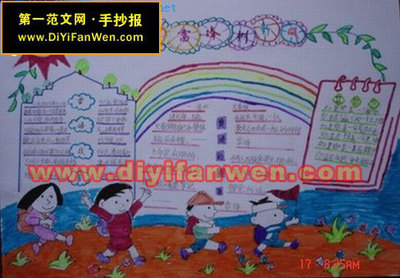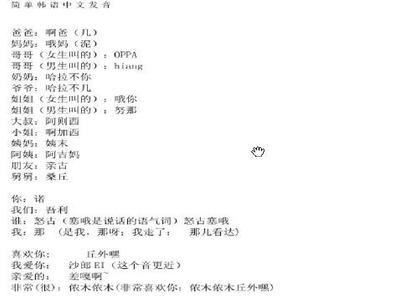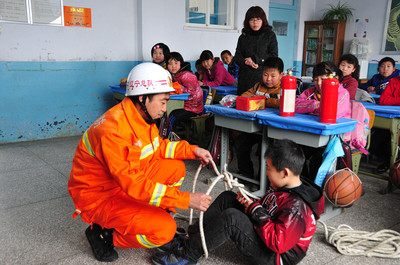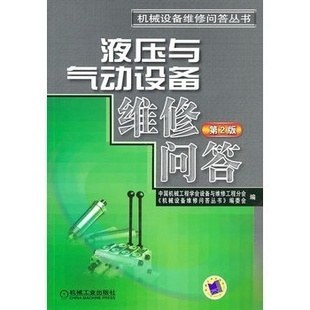How to know the meaning of a word
--------Words strategy in reading
Abstract
As China became a member of WTO and the pace of theglobalization sped up, English talents would be in urge need, solearning English is becoming more and more important! If you wantto learn English, we must have a good commend of vocabulary.Wilkins said: “Without grammar, very little can be conveyed,without vocabulary, nothing can be conveyed (Yan xuan,P3).” Vocabulary size is an important criterionto measure one's English proficiency. More words mean more freedomin language use. To many English learners, language skill remainsdifficult due to insufficient vocabulary. Both learners andteachers should be active to find an appropriate way to improvethat condition. However, generally speaking, this idea can not befully achieved at our usual classes. Because in our class, wealways regard the text books as the important part. In thisarticle, I will introduce some aspects about the difficulties thatmany students may meet in the procedure of reading and how to sue adictionary.
Key Words: guess, word-formation, dictionary
How to know the meaning of a word
----------Word strategy inreading
It is known that we are always confronted with words problems whenwe are reading something, and sometimes we can’t understand whatthe author means if we don’t know the meaning of a word ormisunderstand the meaning of a word, so it’s important for us toguess the meaning correctly, then, how to realize the right meaningof a word?
First, when we are reading, we can guess the meaning fromcontext. Guessing from context refers to inferring a word’s meaningfrom the surrounding words in a text. Incidental learning viaguessing from context is the most important of all sources ofvocabulary learning. With the definition of new words according tothe context for clues to guess the meaning is the most common anddirect way of guessing word.
The first strategy is divided into five states. First, when we arefaced with an unknown word, we must focus on it. If convenient, anote is necessary or a focus-line can be used. Then, knowingwhether it is a noun, a verb, an adjective, or an adverb accordingto its morphology. Second, look at the clause or sentencecontaining the unknown word. If the unknown is a noun, whatadjectives describe it? What verb is it near? That’s what does thisnoun do, and what is done to it? If the unknown word is a verb,what nouns does it go with? Is it modified by an adverb? If it isan adverb, what verb is it modifying? Third, look at therelationship between the clause or sentence containing the unknownword and other sentence or paragraphs. Sometimes this relationshipwill be signaled by a conjunction like but, because, if, when, orby an adverb like however, as a result. Often there will be nosignal. The possible types of relationship include cause andeffect, contrast, inclusion, time, exemplification, and summary.Forth, Use the words you learn before to guess the meaning. Atlast, look up a dictionary to make sure the meaning is right.
Second, word-formation is very important in the word aspect. Themain part of the word-formation is affixes including prefixationand suffixation which can be used to help the learning ofunfamiliar words by relating these words to known words or to knownprefixes and suffixes. This can be used as a way of checkingwhether an unfamiliar word has been successfully guessed fromcontext.
A root is the base form of a word that expresses its essentialmeaning, a meaning that never changes, even though affixes may beadded at the beginning of a word or at the end of a word. So we maysay that the root is the foundation of each word. To be more exact,the term root is that part of the word left when all the affixesare removed. When we see astrange word, the first we should do is to divide this unknown wordinto several parts, then find its root, and affixes. However, wemust know the fundamental meaning of the roots and affixes. Atlast, our learners can get the meaning according to the meaning ofthe root and affixes. In other hand, if we guess the meaning on thebasis of the context, we can also check whether it is trueaccording to the word-formation. After all this has been done, wecan also look up a dictionary for its specific meaning.
Now that the dictionary is so important, next I will say somethingabout dictionary and how to use a dictionary. To know how to useit, first we must know what a dictionary is.
Merriam-Webster’s Collegiate Dictionary (eleventh edition),published in 2003 in the USA, states that a dictionary is “areference source in print or electronic form containing wordsusually alphabetically arranged along with information about theirforms, pronunciations, functions, etymologies, meanings andsyntactical and idiomatic uses.” As a matter of fact, dictionary isonly a reference book for most of our common learners. Because whatwe need is meaning, sometimes the forms of the verb (the pasttense, past participle and present participle), forms of theadjective and adverb (the comparative and superlative degrees ofthe adjective an adverb) in the entries, if the verb or adjectiveand adverb are irregular ones.

Dictionary has some characteristics. First of all, dictionaries arereference books, to be exact, the reference sources in print orelectronic form. It is because in a few recent years the computerhas become a powerful and indispensable tool in our daily lives.Secondly, dictionaries are compiling to the nature of thevocabulary. They tell learners how to use words and phrasescorrectly. Thirdly, the chief units of compiling dictionaries areentries, that is, words, including affixes, and combining forms.Fourthly, word-entries in any dictionary are arranged inalphabetical order. This arrangement makes it convenient forlearners to use dictionary. We have known a lotabout dictionary, then how to use it efficiently?
Purchase a quality dictionary. If you don't already own a gooddictionary, consider purchasing one during sale time. It's also agood idea to upgrade your dictionary every now and then so that youhave access to the latest new words that are added to thedictionary every year.
Familiarize yourself with your dictionary. Dictionaries vary inapproach. The best way to learn how to use your particulardictionary effectively is to read its introductory section whereyou'll find out how the entries are arranged. The introductorysection of your dictionary will explain important information suchas the abbreviations and pronunciation symbols used throughout theentries. There may also be information on pronunciation of wordswith similar spellings, which can be helpful if you have only hearda word and you're not sure of its spelling. For example, if youhear "not", it might also be "knot" but the "k" is silent, and thislist can help you with suggestions.
Know how to look up a word. When you come across a word youdon't recognize or know the meaning of, keep a note of it. When youget around to looking it up, here is the sequence to follow:Proceed to the letter of the alphabet that your word begins with,and then check for the guide words. Once close, use the secondletter of your word to run down the page and locate your word.
Knowhow to make the most of your find. Once you've located theword, there are several useful elements that you can discover aboutthe word from the dictionary entry. Read the information givenabout this entry, and depending on your dictionary, you might finda definition of the word, one or more pronunciations and so on.
Think about how the information you've found relates to the word asyou encountered it. If there are multiple definitions, decidewhich one matches your source or context for the word and noticehow the different definitions are related to one another. In anEnglish dictionary, the most common meaning is usually placed.
I believe that we will be handle dictionary very skillfullyafter what I have introduced, no matter what we have learnt aboutlanguage, dictionaries are essential. These three parts seem tohave no connections, as a matter of fact, they are related closely.When reading, guessing meaning from context and word-formation arethe most two important ways to know a word’s meaning quickly, andthen look up a dictionary for its true meaning. As the time passed,our skill must be developed and our vocabulary quantity must beexpensed.
Bibliography
1 An Introduction To English Lexicology , 英语词汇学引论
2 Practical English Lexicology, 英语实用词汇学
3 Teaching And Learning Vocabulary, 英语词汇教与学
 爱华网
爱华网



